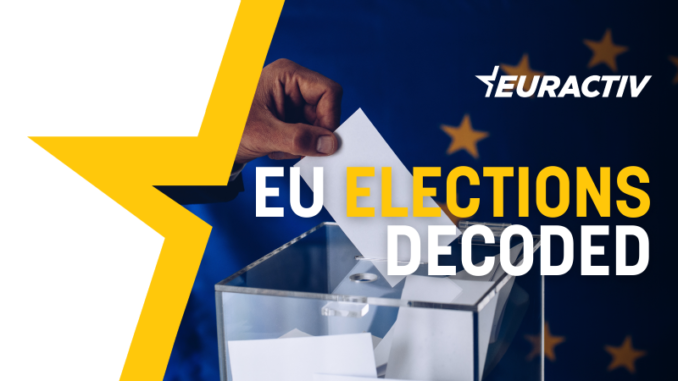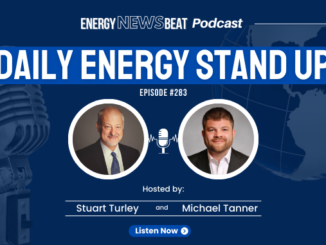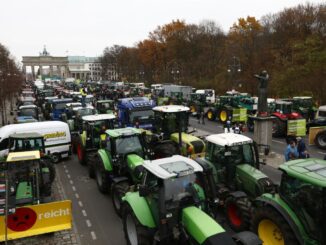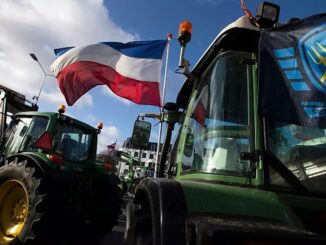
In today’s edition
- Maybe it is too late to look for votes among farmers
- This is the year of security for electoral campaigns
- TikTok will be a player in elections, but with which risks?
It is likely too late to chase the votes of European farmers – by at least twenty years. Perhaps they are even useless in deciding the outcome of the next European elections. Since the beginning of electoral games, people who make up their minds at the last minute, in front of the ballot box, determine the final result.
With protests around Europe and violent episodes in EU capitals in recent months, farmers have made headlines like never before.
It was a conjunction of different factors, including the need for new narratives for electoral campaigns. However, if the goal for June’s EU elections is to attract farmers’ votes away from the right and extreme right, well, maybe centrist parties realised it some 20 years too late. Let’s see why.
The reasons for farmers’ protests are connected with EU policies, national issues, and multiple crises the continent is experiencing. Our AgriFood editor Angelo Di Mambro has explained it in several articles stressing that the reasons behind protests are complex, interconnected, and interrelated.
All these issues together brought to the streets and squares in Europe tractors and farmers but also members of civil society, turning the farmers’ protest into a hub for venting several grievances, in what Di Mambro called the ‘Tower of Babel’.
In the meantime, since last spring, the European People’s Party (EPP) has launched a narrative of being “the party of the farmers,” a rhetoric best displayed in the EPP’s battle to stop the approval of the Nature Restoration Law, a piece of legislation that aims to rejuvenate at least 20% of EU land and sea areas by 2030.
Opposition (the EPP) was motivated by its alleged impact on the farmers. A watered-down version of the law was eventually approved this week by the European Parliament,
European Commission President Ursula von der Leyen was not that vocal on farmer issues in the last year, so this seems more of an electoral strategy by EPP President Manfred Weber.
First, the EU could not find an agreement on the reform of pesticides, a piece of legislation that would have a big impact on farmers. Second, even after announcing her bid for a second mandate, von der Leyen made no major reference to farmers in her multiple speeches.
Even in her State of the Union speech last September, she talked about the importance of farmers in German, in a message that seemed more directed at Weber than farmers. That said, it is not even clear how much the farmers count in terms of votes. Social groups as landowners, farm owners, farmers’ families, workers in agriculture, people living in rural areas are overlapping. What is even weirder about this electoral attention is that this is an old-fashioned issue that was lost at least several decades ago.
In the last century, people in the countryside represented strongholds for the left and socialist parties. However, with changes to the concept and action of politics and political participation, countryside and working-class votes started to gradually move to the right and far-right of the political spectrum.
This process started in the early 2000s. In 2024, we can safely say that this is already a very deeply rooted pattern, which makes it more complicated for centrist parties like the EPP to be successful in their campaign.
Perhaps the strategy of running after the far-right’s electorate, and its rhetoric, is not the best way to be successful in the next electoral round.
This is the year of security in the EU electoral narrative. Both Ursula von der Leyen and the socialist EU leading candidate Nicola Schmit (currently also European commissioner for employment and social rights) used the word ‘security’ for their electoral messages. Von der Leyen used it to specify the importance of investing in security for citizens, referring first to investments to defend Ukraine. In an exclusive interview with Euractiv, Schmit talked about the need for security because of the wars at EU borders but also to protect citizens economically, with proper support. The exclusive interview with Schmit will be published on Saturday (1 March).
European Parliament and TikTok for elections. TikTok was banned from EU institutions’ devices last year due to cybersecurity concerns. With European elections approaching, the European Parliament decided to use it anyway to fight disinformation on the platform. However, there are several questions on how to use the platform safely. Our tech reporter Julia Tar talked to an expert on which criteria the parliament should adopt in this circumstance.
There are still obstacles for women to vote and stand as candidates in 2024. Family roles, sexism, and violence against women are among the reasons why women face difficulties when it comes to elections. Next week, Euractiv will publish a full interview with the European Women’s Lobby, providing information and data on the matter.
Are EU elections fit for people with disabilities? There are still several obstacles for people with disabilities to vote or stand as a candidate for elections, the communications coordinator of the European Disability Forum, Andre Felix, told Euractiv. According to their checklist, “voters with disabilities still face many issues accessing campaign information,” Felix said.
Flash updates
Future of far-right group in EU Parliament threatened by Franco-German rift. Rifts are deepening between the two major far-right players of the European Parliament, Germany’s AfD and Marine Pen’s Rassemblement National, threatening their European unity and the future of their common parliamentary group, the ID.Following TikTok, Meta announces 2024 EU election preparations. After TikTok, Meta has finally unveiled its full-scale strategy to tackle misinformation ahead of June’s EU elections. In addition to removing violent and anti-election content, Meta is also working together with several multilingual fact-checking partners to review and rate the content.
EU Socialists changed their position on China in their electoral manifesto. “Relations with China should be more cautious but not too decisive” – is the message that comes from the PES’ electoral manifesto. This watered-down plan of action is intended to avoid jeopardising trade relations with Beijing.
Renew Europe’s Valérie Hayer to become Macron camp’s top candidate for EU elections. Emmanuel Macron’s party hasn’t made the announcement official yet, but Hayer’s name has been swirling about for weeks, amid concerns that the pro-Macron camp was struggling to find the proper candidate to head the EU elections push.
If you’d like to contact us for tips, comments, and/or feedback, drop me a line at eleonora.vasques@euractiv.com



